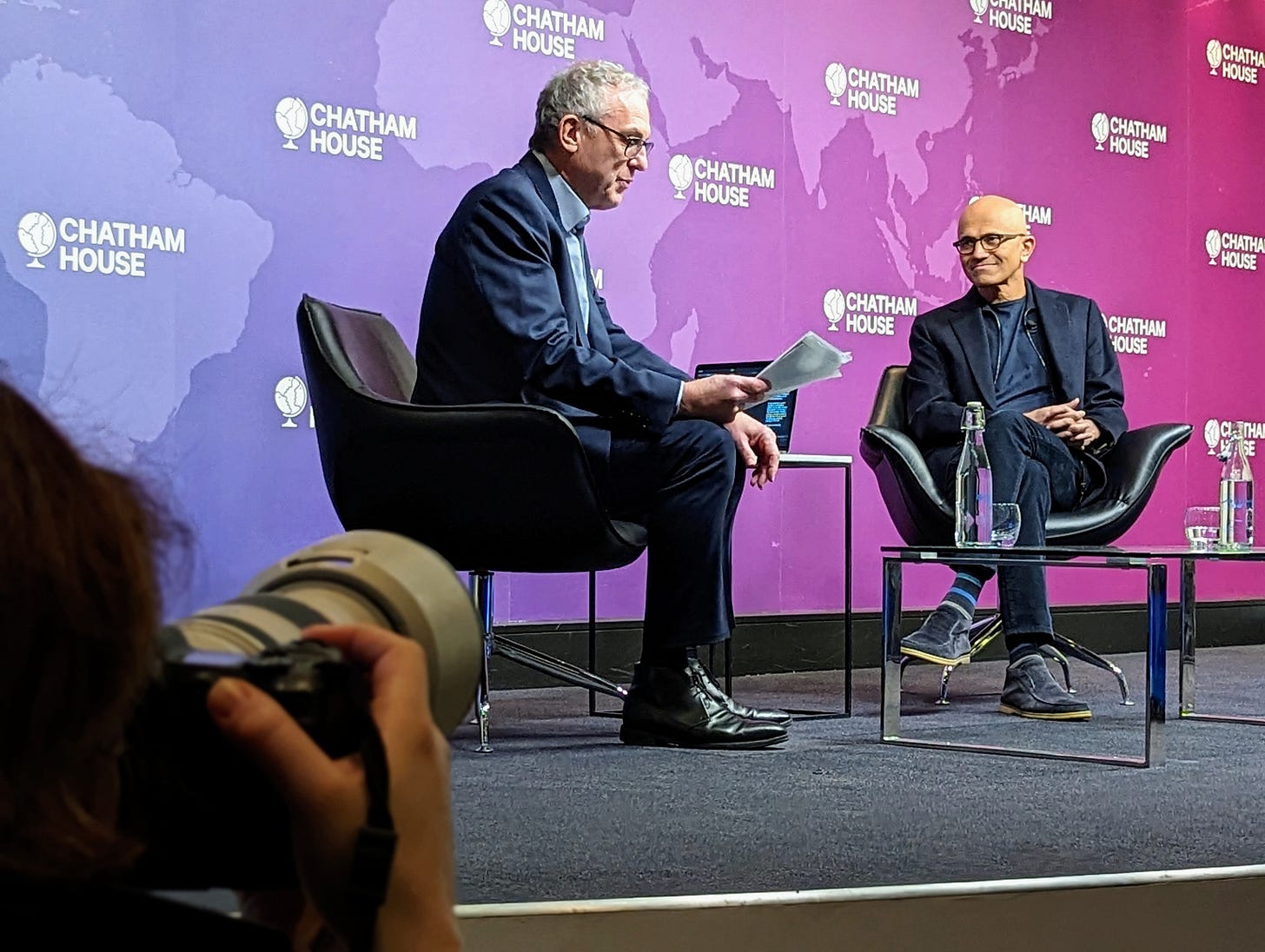Journalists should welcome AI says Microsoft CEO
Satya Nadella told a London audience that AI could reset the entire way we use the internet.
The CEO of Microsoft Satya Nadella has said the news industry should embrace artificial intelligence despite concerns about the risks of replacing human editors with AI, including on his company’s news distribution platforms.
Nadella argued that AI could reset the way people use the internet and that this could be good for news publishing, which has faced sustained challenges to its business model since the advent of the World Wide Web.
Microsoft briefly overtook Apple last week to become the world’s most profitable company.
It was valued at $2.887tn largely on the back of its early investment in Open AI - the creator of ChatGTP - and integration of that technology into its products, including Office, its Edge browser and search engine Bing which it hopes will break Google’s stranglehold on web search.
But the use of AI on its news distribution platforms, including msn.com and Microsoft Start has already sparked alarm.
Last November, Microsoft Start included an AI-generated poll in a news report by The Guardian about the murder of Sydney woman Lilie James, which invited readers to vote on whether she died from murder, accident or suicide. The 21-year-old was believed to have been murdered, with a hammer, by her ex-boyfriend.
Microsoft said it would deactivate computer-generated polls in news articles after an outcry.
However, the incident underlined the risks of replacing humans with artificial intelligence and came amid broader concerns about the potential for AI-created fake videos and images and disinformation to spread and masquerade as news.
During a speaking engagement at the London foreign policy think tank Chatham House on Monday, I asked Nadella what commitments he was willing to make regarding human editorial oversight and the ethical framework applied to news aggregation and dissemination.
He said Microsoft was focused on creating tools, like drafts, that he believed would help reporters.
‘In our own distribution, you brought up msn.com, our goal would be to be able to say, what is it, who generated it, which news organisation is behind it,’ he said.
‘And to make sure that we are not falling victim to anything that is considered not news.
‘So for sure, our framework would be to start with creating tools that improve journalism and journalism quality, both on the creation side and on the distribution side.’
Responding later to a separate question, Nadell said he believed AI could ‘reset’ the way we use the internet, which he said was currently dominated by the dual power bases of search and news feeds.
Google accounts for around 92 per cent of online searches worldwide.
‘Both of these things could be up for disruption, and that’s really where every start-up has a shot,’ he said.
‘So I would say if you’re a publisher, you’re a journalist you should welcome this.
“Because what happens to the information ecosystem when there’s high concentration, things deteriorate.’
He said the next frontier of tech could correct some of the unintended issues that had arisen in the previous iteration, including difficulties in finding information online because of search engine optimisation (SEO) rankings.
‘So from that perspective, I think this is disruptive to the existing power base,’ he said.
Asked to whom he felt accountable as the technology developed, Nadella cited the Oxford academic Colin Mayer who defined corporate purpose as ‘producing profitable solutions for the problems of the people and planet, and not profiting from creating problems.’
He said offering solutions granted Microsoft its social licence to operate around the world.
‘Our shareholders should care about this, I care about this and the company needs to think care about it,’ he said.
‘We can’t … break things around us, if that happens we lose our licence to operate and it will be our shareholders who will suffer.’
He added that Microsoft had an added obligation as a US company.
‘What the UK thinks about the US will matter to us,’ he said.
‘As a multinational company, I don’t take the licence to operate anywhere for granted.’
Competition regulators in the UK and the European Union are examining whether Microsoft’s tie-up with Open AI could stifle other AI offerings.



